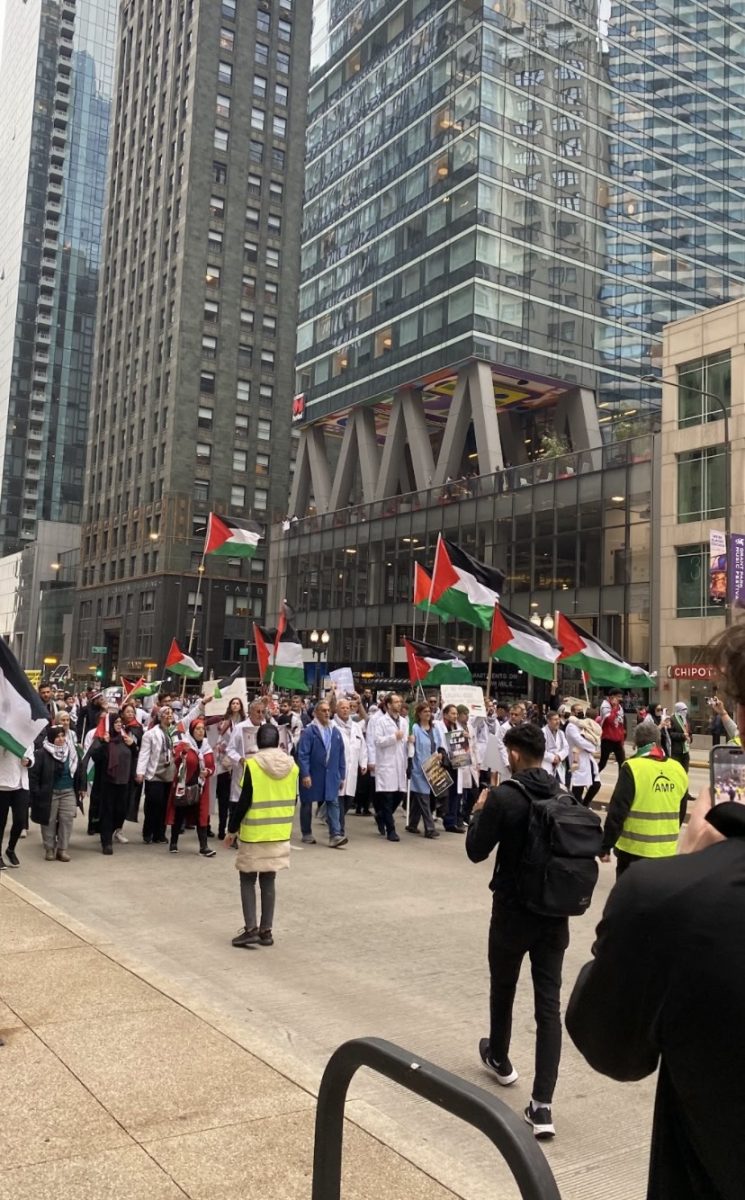Imagine recording earnest messages for millions across the globe to see amidst destruction, poverty and imminent danger from airstrikes and bombs.
This is the reality Palestinian journalists are forced to endure, many of whom have tragically lost their lives in the process— the Committee to Protect Journalists (CPJ) estimates that at least 102 Palestinian journalists have been killed since Oct. 7 and signed an open letter along with several prominent news outlets calling for the protection of reporters in Gaza and their right to report. Seventy-six Palestinian journalists and media workers have been arrested by the Israeli Defense Forces (IDF), 50 of whom are still in prison as of May 29, according to the International Federation of Journalists (IFJ).
Journalists reporting for the Palestinian cause find themselves grappling with rigid travel restrictions and lack of personal protective equipment, as well as facing frequent electricity and internet shortages that hinder them from charging phones and devices used for journalistic work and broadcasting their reports to the world, all while fighting for basic survival amidst shortages of clean water, food and shelter.
Media reporters, in particular, are additionally prone to assaults and attacks on the job, bombardments of threats, cyberattacks and censorship.
Despite the risks these journalists take to clearly document these circumstances, they are met with skepticism, disbelief, and blatant opposition. President Joe Biden stated that he had “no confidence in the number [of casualties] that the Palestinians are using,” despite independent investigations detecting no evidence of data manipulation. Mainstream media would also overstate the reliability and legitimacy of so-called “safe routes” in Gaza, despite Palestinians repeatedly stating that no place is guaranteed safe.
Palestinian journalists have also expressed disdain for how they are directly treated during interviews as well as how their whole story is not properly represented.
“They record my interview before, and then take what is suitable for their agenda,” journalist Motaz Azaiza lamented in the caption of an Instagram post. “Stop dehumanizing us. We are not just mere numbers. Everyone we lost had a name, a story and a place in my heart.”
Journalists for Gaza have played a major role in documenting atrocities and spreading awareness of the Palestinians’ plight. They have provided video evidence, photo evidence and firsthand accounts and testimonies of the horrors that numerous men, women and children in Gaza suffer from through their dedicated journalism, much of which is independently reported through personal social media accounts, such as in the case of Azaiza, Bisan Owda and Hind Khoudary.
Even the branches and locations of major news outlets based in Gaza have been targeted through censorship, shutdowns, and bombings, making it more difficult for native journalists to continue their work. During the last Israel-Gaza conflict in 2021, the Israeli army destroyed the Gaza office of the Associated Press claiming that the office was being used by Hamas without providing any evidence.
Palestinian journalists reporting from the Gaza Strip deserve to be recognized for their efforts and the messages they aim to convey, especially considering the serious risks they take to have their voices heard. They are so much more than their large Instagram followings or passion for photography. As people living in the 21st century, we should follow, share and actively engage with the content of these journalists so that the messages they struggle to echo will be spread.







